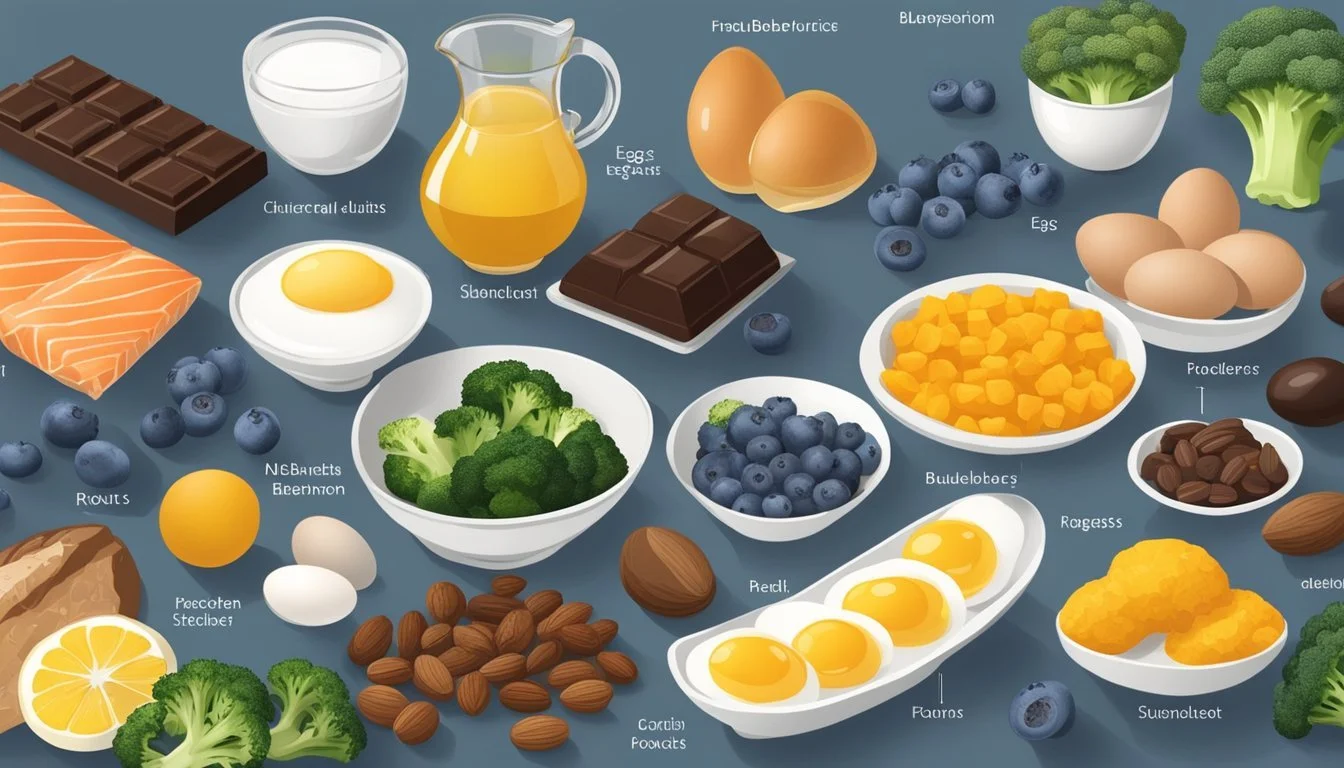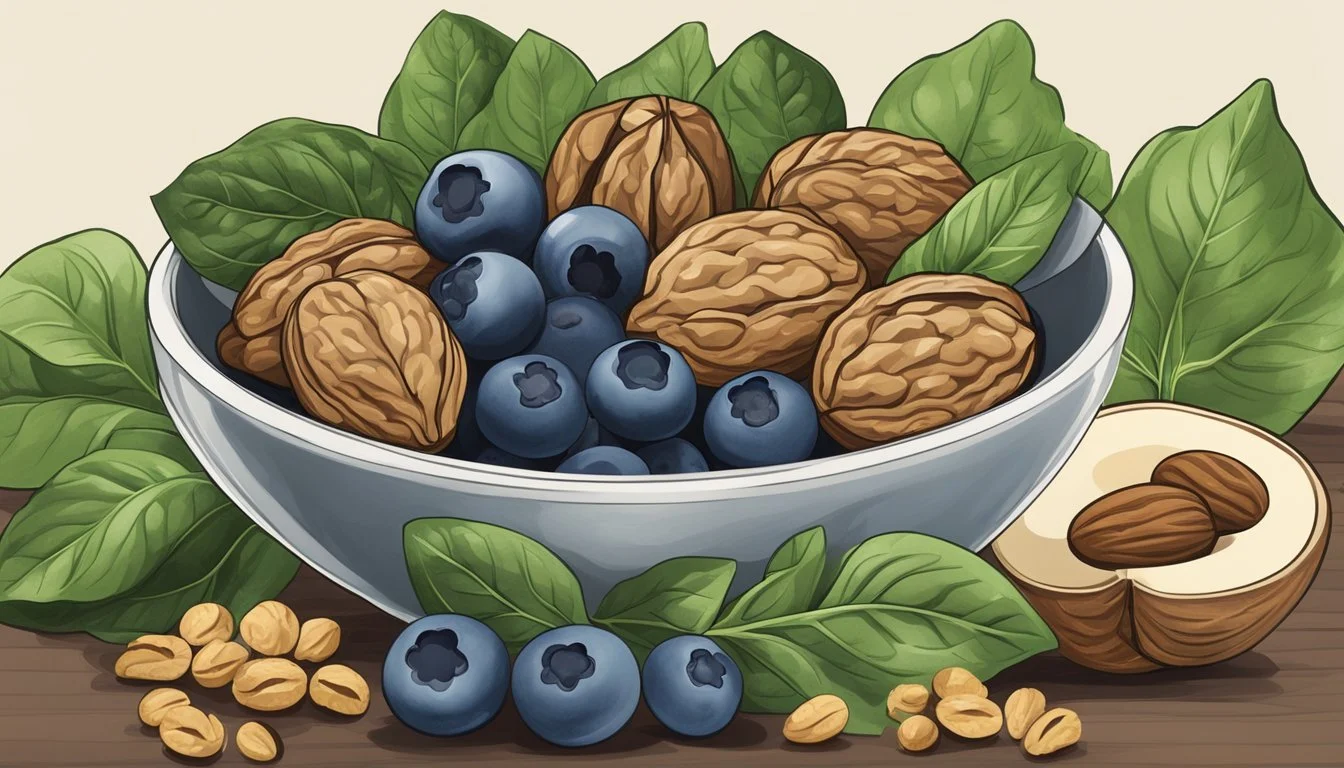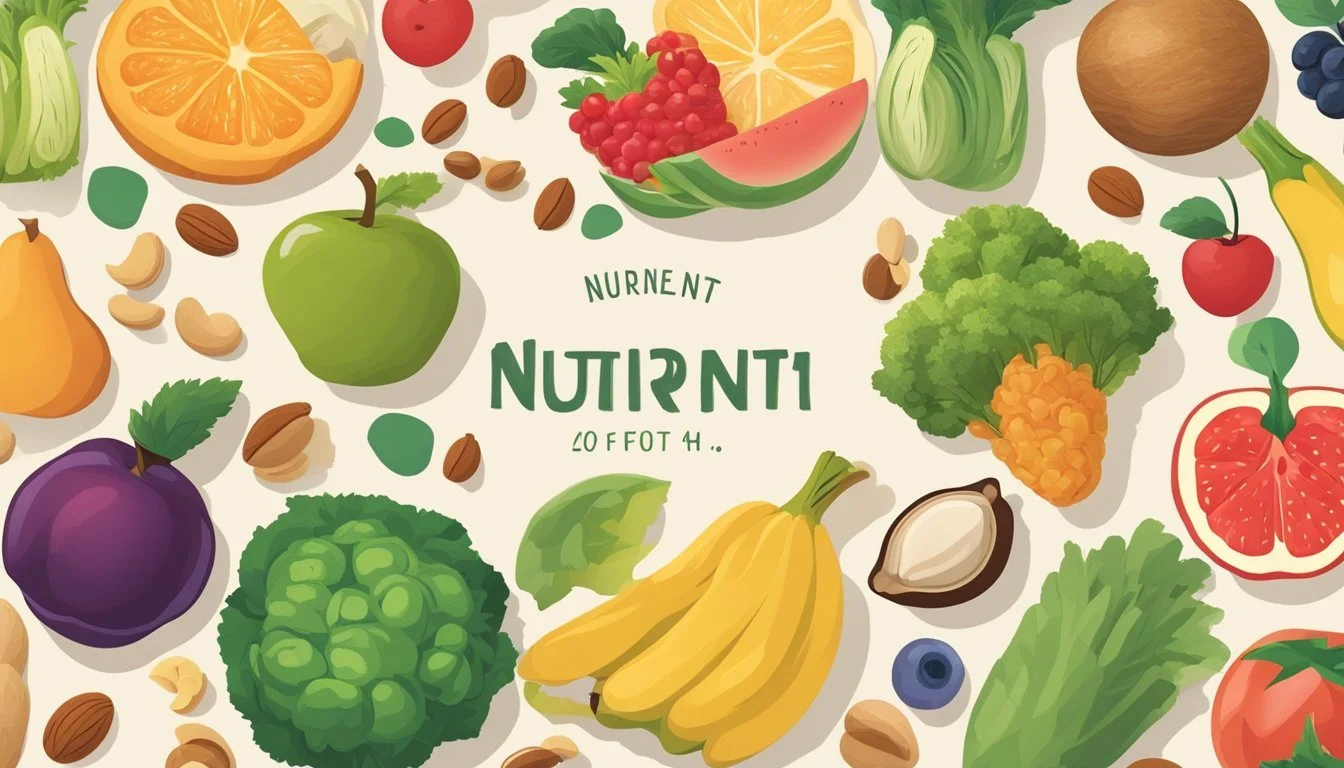7 Intelligence Boosting Foods Backed by Science
Enhance Your Cognitive Performance
The foods we consume play a crucial role in our overall health, including cognitive function. Research has shown that certain nutrients can support brain health, enhance memory, and potentially improve intelligence. By incorporating specific foods into our diets, we may be able to boost our mental capabilities and protect against cognitive decline.
Scientists have identified several key foods that demonstrate promising effects on brain function and cognitive performance. These foods contain various compounds and nutrients that support neurological processes, promote cell growth, and reduce inflammation in the brain. From fatty fish rich in omega-3s to antioxidant-packed berries, a diverse array of options exists for those looking to nourish their minds through nutrition.
1) Blueberries
Blueberries are a powerhouse of brain-boosting nutrients. These small, blue fruits are packed with antioxidants, particularly flavonoids, which have been linked to improved cognitive function.
Research suggests that regular consumption of blueberries may enhance memory and concentration. A study published in the Journal of Agricultural and Food Chemistry found that older adults who consumed blueberry juice daily for 12 weeks showed improvements in memory tests.
The high antioxidant content in blueberries helps protect brain cells from oxidative stress and inflammation. This protection may contribute to slowing age-related cognitive decline and reducing the risk of neurodegenerative diseases.
Blueberries are also rich in vitamin C, vitamin K, and fiber. A cup of blueberries contains approximately 3.6 grams of fiber and 14.9 grams of sugar, making them a nutritious snack option.
Incorporating blueberries into your diet is easy. They can be eaten fresh, added to smoothies, or used in baking. Both highbush and wild lowbush varieties offer similar health benefits, providing a delicious way to support brain health.
2) Walnuts
Walnuts have garnered attention as a potential brain-boosting food. These nuts are rich in omega-3 fatty acids, particularly alpha-linolenic acid (ALA), which is crucial for brain health.
Research suggests that regular walnut consumption may improve cognitive function and memory. A UCLA study found that participants who ate walnuts demonstrated better cognitive test scores compared to those who did not.
Walnuts contain antioxidants and anti-inflammatory compounds that may protect brain cells from oxidative stress and inflammation. These properties could potentially reduce the risk of age-related cognitive decline.
The nutrient profile of walnuts extends beyond brain health. They are also a good source of protein, fiber, and essential minerals, contributing to overall well-being.
Incorporating walnuts into one's diet is relatively simple. A handful of walnuts can be added to salads, yogurt, or eaten as a snack. The recommended serving size is about 1 ounce or 28 grams per day.
While more research is needed to fully understand the extent of walnuts' cognitive benefits, current evidence supports their inclusion in a brain-healthy diet.
3) Salmon
Salmon is a powerhouse of brain-boosting nutrients. This fatty fish is rich in omega-3 fatty acids, particularly DHA, which plays a crucial role in cognitive function and brain health.
Regular consumption of salmon may help lower the risk of Alzheimer's disease and dementia. Its high vitamin B12 content further supports brain health, with a 3-ounce fillet providing nearly the entire recommended daily intake.
Salmon also contains astaxanthin, a powerful antioxidant that can protect brain cells from oxidative stress. This pink-hued fish is an excellent source of protein, essential for neurotransmitter production and overall brain function.
Studies have shown that individuals who consume salmon regularly tend to have better memory and cognitive performance. The omega-3s in salmon may also help reduce inflammation in the brain, potentially improving mood and mental clarity.
For optimal benefits, choose wild-caught salmon over farmed varieties. Aim to include salmon in your diet at least twice a week to support your brain health and cognitive function.
4) Turmeric
Turmeric, a vibrant yellow spice commonly used in Indian cuisine, has gained attention for its potential cognitive benefits. The active compound in turmeric, curcumin, is believed to be responsible for its brain-boosting properties.
Research suggests that curcumin may help protect brain cells and improve memory function. A study involving mice found that turmeric appeared to reverse cognitive symptoms caused by toxic aluminum exposure.
Curcumin's anti-inflammatory and antioxidant properties may contribute to its neuroprotective effects. These characteristics could potentially help reduce the risk of neurodegenerative diseases.
Some studies indicate that turmeric may enhance mood and alleviate symptoms of depression. This could indirectly support cognitive function, as mental well-being is closely linked to brain health.
Incorporating turmeric into one's diet is relatively easy. It can be added to various dishes, used as a tea, or taken as a supplement. However, it's important to note that the body doesn't easily absorb curcumin on its own.
Combining turmeric with black pepper or consuming it with healthy fats may increase its bioavailability. As with any dietary change, it's advisable to consult a healthcare professional before significantly increasing turmeric intake.
5) Broccoli
Broccoli stands out as a nutritional powerhouse for brain health. This cruciferous vegetable is packed with compounds that support cognitive function and protect against age-related decline.
Rich in antioxidants, broccoli helps combat oxidative stress in the brain. Its high vitamin K content aids in the formation of sphingolipids, fats that are densely packed into brain cells.
Broccoli contains glucosinolates, which break down into compounds with anti-inflammatory properties. These may help protect against neurodegenerative diseases and support overall brain health.
The vegetable's abundance of folate contributes to mental clarity and may help prevent depression. Its fiber content assists in stabilizing blood sugar levels, promoting consistent cognitive performance throughout the day.
Regular consumption of broccoli has been linked to improved memory and concentration. Its diverse array of nutrients work synergistically to support brain structure and function.
6) Pumpkin Seeds
Pumpkin seeds are a nutrient-dense food that may support cognitive function. These small seeds are packed with essential minerals and antioxidants that contribute to brain health.
Zinc, abundant in pumpkin seeds, plays a crucial role in neurotransmitter function and cognitive processing. It supports memory formation and learning capabilities, making it valuable for maintaining mental acuity.
Magnesium, another key mineral found in pumpkin seeds, is involved in numerous biochemical reactions in the brain. It helps regulate neurotransmitter release and supports overall neurological function.
Pumpkin seeds are also rich in iron, which is essential for oxygen transport to the brain. Adequate iron levels help prevent cognitive decline and maintain optimal brain performance.
The antioxidants present in pumpkin seeds, including vitamin E and carotenoids, protect brain cells from oxidative stress. This protection may help reduce the risk of age-related cognitive decline.
Incorporating pumpkin seeds into a balanced diet can be a simple way to support brain health. They can be eaten as a snack, added to salads, or used as a topping for various dishes.
7) Dark Chocolate
Dark chocolate has emerged as a potential brain booster, backed by scientific research. Studies indicate that cocoa flavanols, compounds found in dark chocolate, can enhance cognitive function.
Researchers have observed improvements in working memory performance and visual information processing after consuming cocoa flavanols. These benefits may vary depending on individual factors and consumption levels.
Dark chocolate consumption has been linked to increased production of endorphins, chemicals associated with feelings of happiness and euphoria. This mood-enhancing effect could indirectly support cognitive function.
The antioxidants present in dark chocolate may contribute to its brain-boosting properties. These compounds help protect brain cells from oxidative stress and inflammation.
For optimal benefits, it's important to choose dark chocolate with a high cocoa content. The higher the percentage of cocoa, the more flavanols and potential cognitive benefits it may offer.
While dark chocolate shows promise for brain health, moderation is key. Its high calorie and fat content means it should be consumed as part of a balanced diet.
Nutrient Values and Their Impact on Brain Health
Specific nutrients play crucial roles in supporting cognitive function and brain health. These key components contribute to neural communication, protect against oxidative stress, and aid in the production of essential neurotransmitters.
Omega-3 Fatty Acids
Omega-3 fatty acids, particularly DHA and EPA, are vital for brain structure and function. These nutrients make up a significant portion of brain cell membranes, facilitating communication between neurons.
Studies have linked higher omega-3 intake to improved memory and reduced risk of cognitive decline. Food sources rich in omega-3s include:
Fatty fish (salmon, mackerel, sardines)
Walnuts
Flaxseeds
Chia seeds
Research suggests that a diet high in omega-3s may help protect against age-related brain shrinkage and maintain cognitive abilities as we age.
Antioxidants
Antioxidants protect brain cells from oxidative stress and inflammation, which can contribute to cognitive decline. Key antioxidants for brain health include:
Vitamin C
Vitamin E
Beta-carotene
Flavonoids
Foods high in antioxidants:
Berries (blueberries, strawberries, blackberries)
Dark chocolate
Leafy greens (spinach, kale)
Nuts and seeds
Regular consumption of antioxidant-rich foods has been associated with better memory performance and reduced risk of neurodegenerative diseases.
Vitamins and Minerals
Certain vitamins and minerals are essential for optimal brain function and cognitive health. These micronutrients support various neurological processes and help maintain brain tissue.
Key vitamins and minerals for brain health:
Nutrient Function Food Sources Vitamin B12 Supports myelin production Eggs, meat, fish Folate Aids in neurotransmitter synthesis Leafy greens, legumes Iron Helps transport oxygen to brain cells Red meat, spinach Zinc Supports neuronal communication Oysters, pumpkin seeds
Choline, found in egg yolks and organ meats, is crucial for cognitive function. It serves as a precursor to acetylcholine, a neurotransmitter involved in memory and learning.
Adequate intake of these nutrients through a balanced diet can help maintain cognitive function and potentially slow brain aging.
Scientific Studies on Cognitive Enhancement
Numerous studies have investigated the impact of specific nutrients on brain function and cognition. Research has focused on omega-3 fatty acids, antioxidants, and various vitamins to understand their potential cognitive benefits.
Studies on Omega-3's Efficacy
Omega-3 fatty acids, particularly DHA and EPA, have been extensively studied for their cognitive effects. A randomized controlled trial published in the American Journal of Clinical Nutrition found that DHA supplementation improved memory and reaction time in healthy young adults.
Another study in the journal Neurology showed that older adults with higher levels of omega-3s had larger brain volumes and better cognitive performance. This suggests a potential protective effect against age-related cognitive decline.
Research has also explored omega-3's role in children's cognitive development. A study in PLOS One demonstrated that infants who received DHA-enriched formula showed improved problem-solving skills compared to those on standard formula.
Research on Antioxidants and Cognitive Decline
Antioxidants have garnered significant attention for their potential to combat oxidative stress in the brain. A long-term study published in the Annals of Neurology found that individuals with higher intakes of flavonoids, particularly from berries, experienced slower rates of cognitive decline.
The Nurses' Health Study, which followed over 16,000 participants, revealed that women who consumed more blueberries and strawberries had slower rates of cognitive aging by up to 2.5 years. This effect was attributed to the berries' high anthocyanin content.
Research in the Journal of Alzheimer's Disease showed that consumption of cocoa flavanols was associated with improved cognitive function in elderly subjects with mild cognitive impairment. The study highlighted the potential of antioxidants in supporting brain health.
Clinical Trials Involving Vitamins and Brain Function
Several clinical trials have examined the effects of vitamin supplementation on cognitive performance. A randomized controlled trial in the New England Journal of Medicine assessed the impact of B vitamin supplementation on cognitive function in older adults with elevated homocysteine levels.
The study found that B vitamin supplementation slowed brain atrophy and cognitive decline in participants with high homocysteine levels. This suggests a potential role for B vitamins in maintaining cognitive health in certain populations.
Research published in JAMA Neurology investigated the effects of high-dose vitamin D supplementation on cognitive function in older adults. The study showed improvements in executive function and processing speed in participants receiving vitamin D.
A meta-analysis in the Cochrane Database of Systematic Reviews examined the effects of vitamin E supplementation on cognitive function. While results were mixed, some studies indicated potential benefits in slowing cognitive decline in specific populations.







